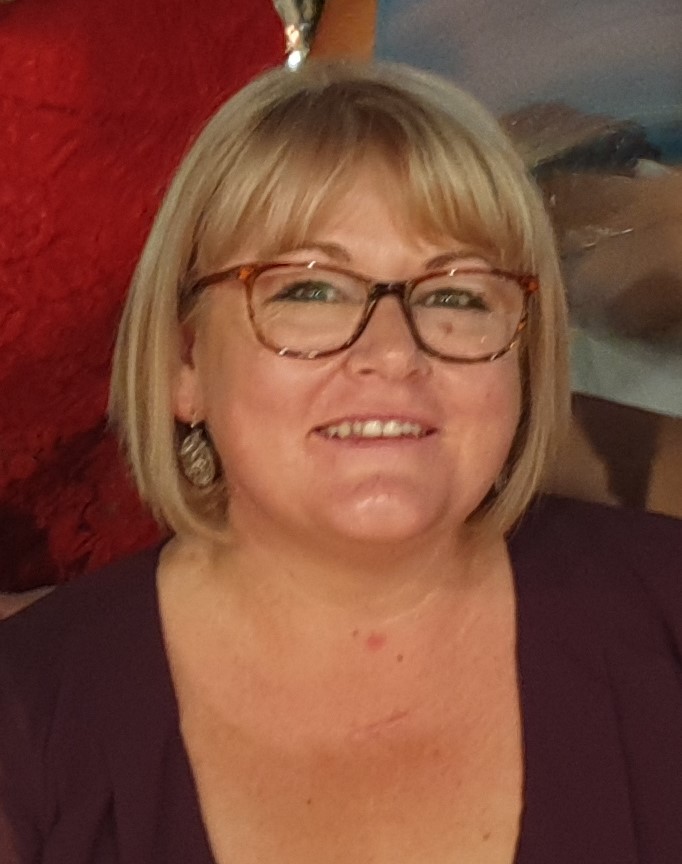In partnership with the NSW Office for Responsible Gambling, Mental Health First Aid International is currently delivering Conversations about Gambling and Talking about Gambling for free to NSW residents and communities as part of the state’s GambleAware program.
We spoke to Jennie O’Hara, a Licensed Mental Health First Aid (MHFA) Instructor and Corporate Trainer at Lifeline Central West, about her experiences delivering Conversations about Gambling to staff, workplaces and communities in GambleAware regions across NSW.
When we think about the gambling capital of the world, places like Las Vegas often spring to mind. But what many people may not realise is that Australians lose more money from gambling than anywhere else in the world.
With such a high rate of gambling comes an increased risk of harm, yet many Australians remain unaware of how common this issue is or how much it can impact individuals, families and communities.
That’s one of the reasons Jennie O’Hara is so passionate about delivering the Conversations About Gambling course as part of her role at Lifeline Central West in NSW.
She feels privileged to guide participants on a learning journey that educates, challenges perspectives, and inspires a more compassionate understanding of gambling harms, making this the most rewarding of the 14 MHFA courses she is licensed to deliver.
Understanding gambling as a mental health problem
In her role, Jennie delivers the course both to individuals who may encounter people experiencing gambling harm as part of their work in communities, and to those who care for someone who they believe is experiencing gambling harm and looking for ways to support them.
She has noticed that for the latter group of people, there can sometimes be associated feelings of frustration or even anger that can stem from a lack of awareness. But as those individuals learn about the prevalence and impact, and understand gambling harm as a mental health problem, their perspectives shift.
‘We look at how ingrained in our culture gambling is, and how easily recreational gambling can become harmful gambling,’ Jennie explains.
‘It’s about separating the person from the act of gambling and the gambling problem, and understanding how to identify when it becomes harmful, how to approach them to have the conversation, and how to support them to get help.’
Jennie adds that gambling can impact more than just the person who’s experiencing the harm. ‘Problem gambling can affect up to six other people around the person experiencing the problem. It has a real domino effect.’

Jennie delivers the Conversations about Gambling course to individuals, workplaces and communities in NSW as part of the NSW Office of Responsible Gambling’s GambleAware program.
Overcoming the reluctance to speak about gambling
Because the harm that gambling can cause isn’t widely understood, people often feel reluctant to reach out to someone to express their concerns.
For many, that reluctance stems from the financial side of gambling. Jennie says that people often feel uncomfortable bringing up money, especially when it’s tied to someone’s wellbeing.
The training helps people to understand that it’s not about judgement or overstepping personal boundaries, but about offering support in a way that is respectful, compassionate, and informed by people with lived experience of gambling harm and those who care for them.
The link between gambling harm and suicide
The financial strain that comes with gambling can lead to devastating impacts. ‘It can be a life-saving conversation when we understand the correlation between suicide statistics and harmful gambling,’ Jennie shares.
Dr Jakqui Barnfield, a suicide prevention expert who leads the International Programs, Quality and Research portfolio at Mental Health First Aid International, says when someone feels like they’ve lost control over their finances, it can sometimes lead to a deep sense of hopelessness.
‘We see this all too often in cases of gambling harm, where people might feel like there’s no way out,’ Dr Barnfield explains. ‘It’s important that we understand this connection and have the skills and knowledge to act on it.’
Inspiring compassion and understanding around gambling harms
Jennie says this is where the Conversations about Gambling and Talking about Gambling courses really have impact.
‘There is strong evidence that these courses reduce stigma, create awareness, and give people the skills to identify when their loved ones are experiencing harmful gambling, and know how to have the conversation and where to get help.’
Feedback she receives from people in NSW communities illustrates just this. ‘The course helps me understand that it’s an illness and helping someone isn’t interfering with their private life,’ one participant wrote.
‘It’s helped me understand how a person can end up with a gambling problem, which helps me be non-judgemental,’ another shared. ‘I struggled with that before the course.’
Free, fully funded training to empower conversations about gambling is currently available for NSW residents in GambleAware regions.
About Conversations about Gambling
The Conversations About Gambling course teaches participants how to provide initial support to someone who may be experiencing gambling harm or a gambling-related mental health crisis, until professional help is received or the crisis resolves.
Course participants learn about the signs that may indicate a person is experiencing harm from their gambling, how to recognise and respond to suicidal thoughts and behaviours, and the interventions and supports available to encourage pathways to professional help. Learn more.
About Talking about Gambling
The Talking About Gambling course teaches participants how to provide initial support to an Aboriginal and/or Torres Strait Islander person who may be experiencing gambling problems, until professional help is received or any crises resolves.
The course has been developed and reviewed in consultation with Aboriginal and Torres Strait Islander people. It ensures participants are grounded in social and emotional wellbeing from an Aboriginal and Torres Strait Islander perspective, equipping them with the skills to provide mental health first aid in a culturally safe and informed way. Learn more.
Lifeline
13 11 14
lifeline.org.au
Gambling Help Online
1800 858 858 (General)
1800 262 376 (Youthline)
gamblinghelponline.org.au
Gamblers Anonymous
gaaustralia.org.au
Financial Counselling Australia
www.financialcounsellingaustralia.org.au


